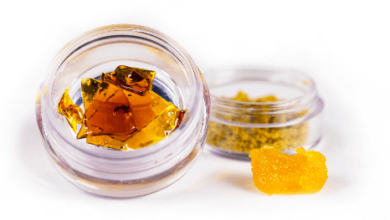What Is CBD

Cannabidiol, commonly known as CBD, is a prominent compound derived from the Cannabis sativa plant. It has gained attention for its potential therapeutic properties, distinguishing itself from THC by being non-intoxicating. Research suggests that CBD interacts with the body's endocannabinoid system, potentially influencing mood and inflammation. As interest in natural remedies grows, understanding CBD's mechanisms and benefits becomes increasingly crucial. What other insights might this compound offer?
Understanding Cannabidiol: The Basics
Cannabidiol, commonly known as CBD, is a naturally occurring compound found in the Cannabis sativa plant, garnering significant attention for its potential therapeutic properties.
Despite prevalent CBD misconceptions, such as its association with psychoactive effects, CBD is non-intoxicating.
Furthermore, CBD legality varies by region, prompting individuals to research local laws to navigate access and usage responsibly, embracing the freedom to explore its benefits.
How CBD Works in the Body
Understanding how CBD interacts with the body reveals its potential benefits and mechanisms of action.
CBD primarily engages with the endocannabinoid system by binding to specific cbd receptors. This interaction helps regulate various physiological processes, including mood, pain perception, and inflammation.
Potential Health Benefits of CBD
As research into cannabidiol (CBD) expands, a growing body of evidence highlights its potential health benefits across various conditions.
Studies suggest CBD may alleviate anxiety, reduce inflammation, and manage chronic pain.
Despite prevalent CBD myths surrounding its legality and effects, many individuals seek natural alternatives to traditional medications.
Understanding these benefits can empower users to make informed decisions about their health and wellness.
Different Forms of CBD Products
While exploring the diverse landscape of CBD products, consumers encounter a variety of forms designed to suit different preferences and needs.
Tincture options provide a versatile method for ingestion, allowing for easy dosage adjustments.
Meanwhile, topical applications offer targeted relief for localized discomfort, making them ideal for those seeking to address specific areas without systemic effects.
Each form presents unique benefits for users.
Conclusion
In the garden of wellness, cannabidiol (CBD) stands as a serene flower, offering gentle relief to those weary from the thorns of modern ailments. Its non-intoxicating nature allows individuals to navigate life's challenges with clarity, much like a guiding light through a dense fog. As research continues to unearth its myriad benefits, CBD may well become an essential tool in the quest for balance and well-being, inviting all to explore the potential of this natural remedy.






